Fritextsökning
Artiklar per år
Innehållstyper
-
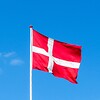
A growing industry in Denmark: “One new life science company a week”
The life science sector in eastern Denmark continues to grow in the number of employees, as well as the number of companies. An emerging problem is the shortage of labour, a new report reveals.
-

IVI’s Director General on establishing in Sweden: Will need up to 40 employees
The International Vaccine Institute, IVI, hopes to have its first staff on-site in Stockholm within a couple of months, says the institute’s Director General Jerome Kim in an interview with Life Science Sweden.
-

Hon blir ny generaldirektör för Vetenskapsrådet
Katarina Bjelke har utsetts till ny generaldirektör och chef för Vetenskapsrådet. Hon tillträder sin nya tjänst den 15 september.
-
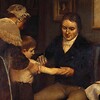
The first vaccine derived from cowpox
The British rural doctor could not forget the words of the peasant girl. Could that really be true? A couple of decades later, on 14 May 1796, he performed the world’s first smallpox vaccination, and a medical breakthrough had occurred.
-
Ryskt universitet stängs av från FIP efter öppet brev till stöd för Putins krig
Ett universitet i S:t Petersburg stängs av från FIP efter ett öppet brev från rektorn till stöd för Rysslands krig i Ukraina. Hundratals rektorer har skrivit under brevet.
-
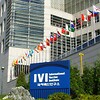
Now it’s settled: The International Vaccine Institute will be located in Stockholm
The International Vaccine Institute, IVI, is establishing itself outside South Korea for the first time. Last week, the Swedish Parliament ratified the agreement, which means that a branch of the institute will be located in Stockholm.
-

No demand for new Covid vaccine – “It will probably be discarded”
So far, just under 6 000 doses of the Covid vaccine from Novavax have been used in Sweden, leaving over 1.4 million doses in stock. “They will probably be discarded due to lack of demand in Sweden as well as globally,” says Sweden’s National Vaccine Coordinator Richard Bergström to Life Science Sweden.
-

Start-up developing ”digital twin” received award during the EIT Health Summit
A biotech company, a medtech company and a company in digital health were on the podium when the EIT Health Catapult awarded its winners.
-

Anna Törner: To kill your darlings
Hopes were high when Anna Törner and her colleague started a study on a dietary supplement that seemed unbelievably good. “Enthusiastically, we dreamed of exciting results and perhaps a publication in a high-impact journal,” she writes in a column.
-

Begreppet life science används mer och mer – men definitionen spretar
Sverige har en life science-strategi, regeringen har ett life science-kontor och tidningen du nu läser heter Life Science Sweden. Men vad är life science egentligen?
-

Forskare utvecklar kontaktlinser för att bota grön starr
Kinesiska forskare har utvecklat kontaktlinser som ska känna av om trycket i ögat stiger och därefter frigöra läkemedel för att sänka trycket vid behov. Förhoppningen är kunna bota grön starr.
-

Industrifonden värvar Fredrik Lehman till sitt life science-team
Fredrik Lehman blir ny Venture Partner på Industrifonden med inriktning på life science.
-

Hello Angelica Loskog!
Life Science Sweden would like to know more about Angelica Loskog and interviews her about her life as a researcher.
-
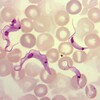
Noxious parasite forms hybrids and deceives the immune system
The small parasite Trypanosoma cruzi has a nasty ability to cause serious illness. Researchers at the Karolinska Institutet have now mapped its ability to deceive the immune system by forming new variants that are mixtures of different strains.
-

Investments worth 40 billion in the Öresund region – “A huge investment wave”
A new report reveals that medical companies in the Oresund region are investing like never before.
-
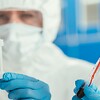
New rules for diagnostic products, but who will certify them? “An extreme shortage area”
In less than two weeks, new and stricter EU rules will enter into force for thousands of products used in important diagnoses of, among other things, cancer and Covid-19. However, not one single institute in the entire Nordic region is able to certify
-
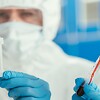
Nya regler för diagnostik – men vem ska certifiera?
Om mindre än två veckor träder nya, skärpta EU-regler i kraft för tusentals produkter som används vid viktig diagnostik av bland annat cancer och covid-19. Men det finns inte ett enda institut i hela Norden som kan certifiera diagnostikföretagens produkter enligt det nya regelverket. "I slutändan riskerar det att drabba patienterna", säger Anna Lefèvre Skjöldebrand, vd för Swedish Medtech.
-
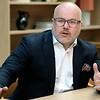
"Ett fortsatt konkurrenskraftigt näringsliv är en grundförutsättning"
Produktionsstörningar bromsar svensk ekonomi.
-

Bioarctic får USA-patent får antikropp mot Parkinsons sjukdom
Den svenska läkemedelsutvecklaren Bioarctic har beviljats substanspatent i USA för en antikropp som utvecklats mot Parkinsons sjukdom.
-

Paolo Macchiarini in court – “The sole intent was to cure”
Paolo Macchiarini’s surgical procedure was illegal, life-threatening and caused severe and prolonged suffering to patients the prosecution claimed when the trial against the Italian surgeon began on Wednesday last week.
-
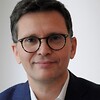
We will now publish more news in English – and offer yet another newsletter
Starting next week, Life Science Sweden will begin offering a newsletter entirely in English.
-
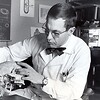
When carelessness, forgetfulness and coincidence become the researcher’s best friend
Forgetfulness, coincidence and a stroke of luck hardly make up a fruitful method of serious research. Or do they? Actually, a number of important medical advances have come about thanks to completely random incidents and the open-mindedness of scientists who were ready to think outside the box.
-
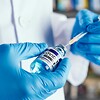
Studie bekräftar ökad risk för myokardit efter mRNA-vaccin
Risken att drabbas av hjärtmuskelinflammation är högre efter två doser av Modernas covidvaccin än efter vaccinet från Pfizer/Biontech, visar en stor nordisk studie. I bägge fallen är dock biverkningen mycket sällsynt.
-

Petter Hartman: Hög tid att höja prioriteten för säkerhetsfrågorna
Är svensk life science rustad för att möta ett förhöjt intresse från främmande makt med industrispionage och cyberattacker som följd? Och går det ens att skydda sig när svaren på våra hälsoutmaningar kräver öppenhet och internationellt samarbete? Svaret är ja, men det är hög tid för bolag och forskningsinstitutioner att ge säkerhetsfrågorna högre prioritet, skriver Petter Hartman i en krönika.